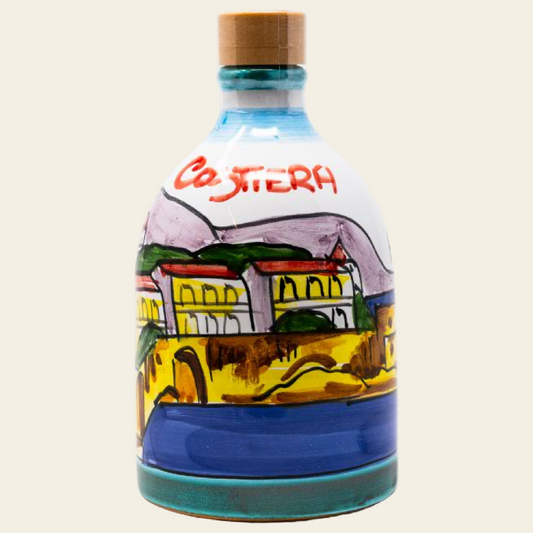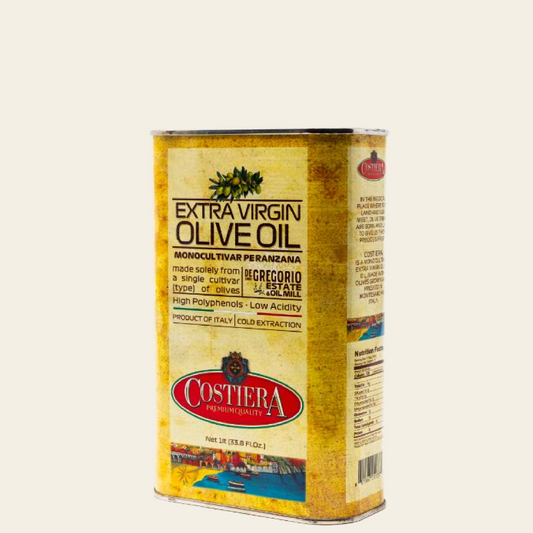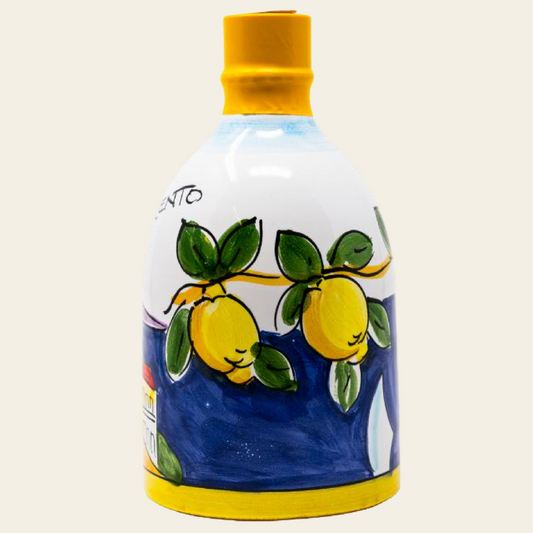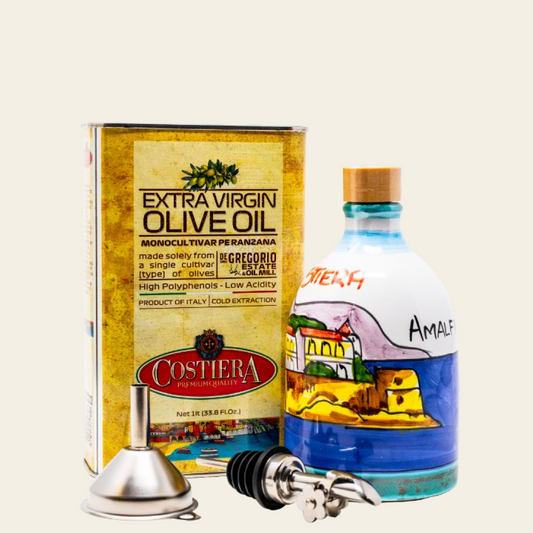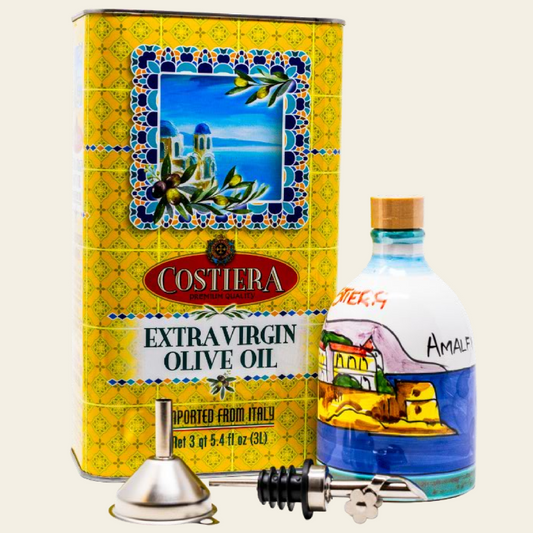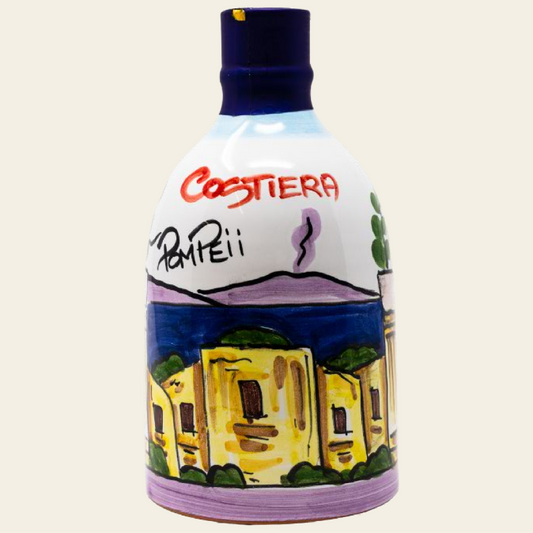Health Benefits of Monocultivar Olive Oil

Heart Health
- Cardiovascular Protection: Olive oil is rich in monounsaturated fats, particularly oleic acid, which can help reduce the risk of heart disease by lowering bad LDL cholesterol levels and increasing good HDL cholesterol levels.
- Blood Pressure: Some studies suggest that olive oil consumption may help lower blood pressure, which is a risk factor for heart disease.

Antioxidant Properties
Olive oil contains antioxidants, such as vitamin E and various polyphenols, which can help combat oxidative stress and reduce the risk of chronic diseases.

Anti-Inflammatory Effects
The polyphenols in olive oil have anti-inflammatory properties that may help reduce inflammation in the body, which is linked to various chronic conditions.

Weight Management
Consuming olive oil as part of a Mediterranean diet has been associated with weight loss and weight management due to its satiety-inducing properties and potential to reduce food cravings.

Diabetes Management
Olive oil may help improve insulin sensitivity and glycemic control, making it beneficial for individuals with type 2 diabetes.

Brain Health
Some research suggests that the Mediterranean diet, which includes olive oil, is associated with a reduced risk of cognitive decline and neurodegenerative diseases like Alzheimer's.

Cancer Prevention
The antioxidants and anti-inflammatory compounds in olive oil may contribute to a reduced risk of certain types of cancer, particularly breast and colon cancer.

Digestive Health
Olive oil has been shown to have a mild laxative effect and may aid in digestive health when consumed in moderation.

Skin Health
Applied topically or consumed, the vitamin E and antioxidants in olive oil can help maintain healthy skin and protect against UV damage.

Longevity
Some studies have suggested that a Mediterranean diet, which prominently features olive oil, may be associated with increased longevity and a lower risk of age-related diseases.
It's important to note that while olive oil offers many health benefits, its effects are best realized as part of a balanced diet. Additionally, the type of olive oil matters; extra virgin olive oil, which is less processed and retains more of its natural compounds, is often considered the healthiest choice.
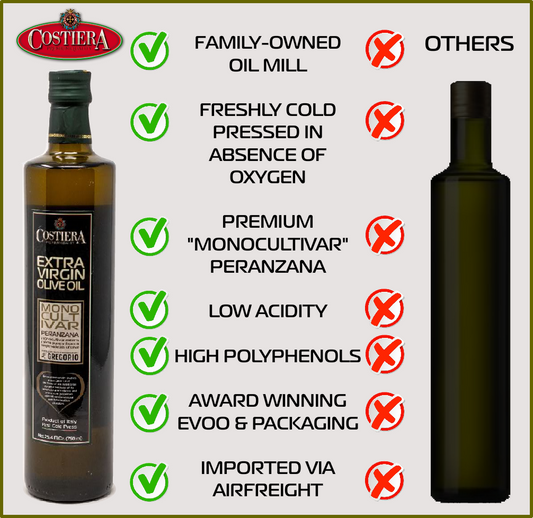
Watch Out for Low-Quality Olive Oil
The quality of olive oil can vary significantly, and it's important to understand the differences between high-quality olive oil and low-quality olive oil. The primary distinctions are in terms of taste, health benefits, and processing methods.
- Processing: Low-quality olive oils undergo extensive processing, including refining, heat treatments, and chemical extraction. These processes can strip away natural flavors, nutrients, and antioxidants.
- Flavor: These oils tend to have a neutral or bland flavor profile, lacking the fruity, peppery, or grassy notes characteristic of high-quality extra virgin olive oil (EVOO).
- Nutrient Loss: Due to the rigorous processing, low-quality olive oils may lose the health-promoting nutrients and antioxidants found in EVOO. This means they may offer fewer health benefits.
- Fat Content: Some low-quality olive oils may contain a higher proportion of fats from sources other than olives, such as canola or sunflower oil, leading to an altered fatty acid profile.
- Acidity: These oils may have higher acidity levels, which can indicate lower quality or even rancidity. Elevated acidity can affect both flavor and shelf life.
- Culinary Use: Low-quality olive oils are often chosen for cooking at high temperatures due to their higher smoke point. However, they are less suitable for culinary applications where flavor enhancement is important, such as salad dressings or drizzling over dishes.
In summary, low-quality olive oils are characterized by a lack of flavor and a diminished nutrient profile due to extensive processing. While they may have a place in high-heat cooking, they fall short when it comes to the rich flavor and health benefits associated with high-quality extra virgin olive oil (EVOO).

